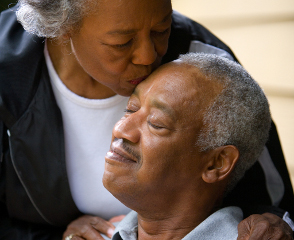
By Stacy Simon
Colon cancer is one of the more common cancers in the US. About 1 in 20 Americans will develop colon cancer at some point during their lifetime. But there are things you can do to help lower your colon cancer risk.
Here are 6 ways to help protect your colon health.
Get screened for colon cancer. Screenings are tests that look for cancer before signs and symptoms develop. Colon screenings can often find growths called polyps that can be removed before they turn into cancer. These tests also can find colon cancer earlier, when treatments are more likely to be successful. The American Cancer Society recommends testing starting at age 50 for most people; talk to your doctor about when you should start and which tests might be right for you.
RESOURCES:
How the American Cancer Society Fights Colon Cancer
Colon Cancer Videos
Colon Cancer Stories of Hope
American Cancer Society screening guidelines
More information about colon cancer
Eat lots of vegetables, fruits, and whole grains. Diets that include lots of vegetables, fruits, and whole grains have been linked with a decreased risk of colon cancer. Be sure to get your fiber from food, not supplements; studies have not been able to show that supplements help lower risk. Eat less red meat (beef, pork, or lamb) and processed meats (hot dogs and some luncheon meats), which have been linked with an increased risk of colon cancer.
Get regular exercise. If you are not physically active, you have a greater chance of developing colon cancer. Increasing your activity may help reduce your risk. Learn more about how to meet diet and exercise goals at cancer.org/foodandfitness.
Watch your weight. Being obese or very overweight increases your risk of getting and dying from colon cancer. Eating healthier and increasing your physical activity can help you control your weight.
Don’t smoke. Long-term smokers are more likely than non-smokers to develop and die from colon cancer. If you smoke and you want to quit, or know someone else who does, see the American Cancer Society Guide to Quitting Smoking, or call us at 1-800-227-2345. Getting help increases your chances of quitting successfully.
Limit alcohol. Colon cancer has been linked to heavy drinking. The American Cancer Society recommends no more than 2 drinks a day for men and 1 drink a day for women. A single drink amounts to 12 ounces of beer, 5 ounces of wine or 1½ ounces of 80-proof distilled spirits (hard liquor).
Changing some of these lifestyle habits can also lower the risk for many other types of cancer, as well as other serious diseases like heart disease and diabetes. The links between diet, weight, and exercise and colon cancer risk are some of the strongest for any type of cancer.
Risk factors you can’t change
Most people who are diagnosed with colon cancer are older than 50. That’s why the American Cancer Society recommends colon cancer screening begin at age 50 for people at average risk. But some people have certain risk factors that make them more likely to develop it, and to get it at an earlier age. This may mean they should start screening earlier, or get tested more often than other people.
One of these risk factors is family history. As many as 1 in 5 people who develop colon cancer have other family members – especially parents, brothers and sisters, or children – who’ve had it. Family history of other colon problems can also increase risk. These include pre-cancerous polyps and hereditary syndromes such as familial adenomatous polyposis (FAP) or hereditary non-polyposis colon cancer (HNPCC), also known as Lynch syndrome.
Having other conditions, such as ulcerative colitis or Crohn’s disease can also increase your risk of colon cancer. If you have any of these problems, talk to your doctor about when to begin screening.
